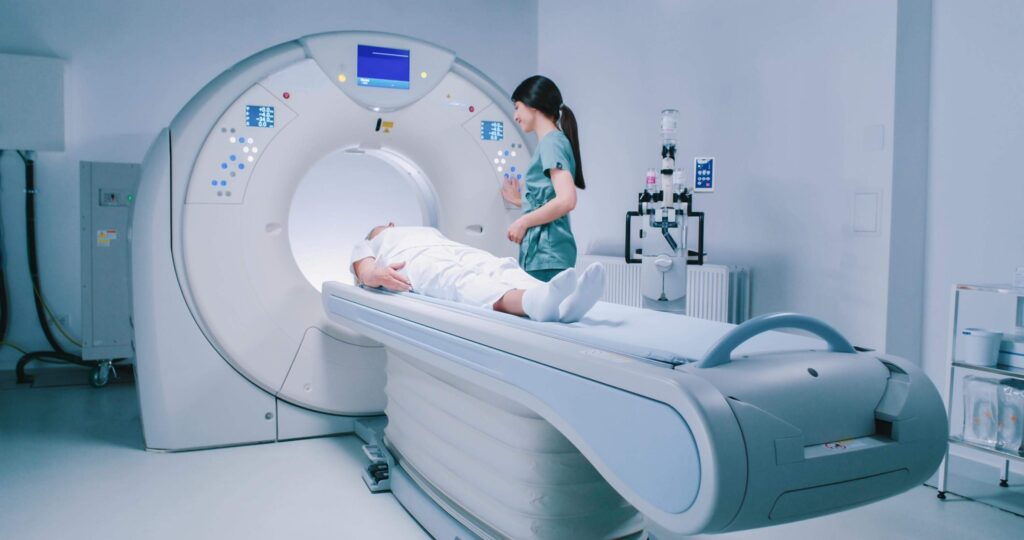Swallowing for a Clearer View: A Guide to Drinking Oral Contrast for CT Scans
Computed Tomography (CT) scans are a vital diagnostic tool used to visualize internal organs and structures. Sometimes, a contrast medium is needed to enhance the visibility of specific organs or tissues. Oral contrast, a liquid you drink before the scan, is often used for CT scans of the abdomen and pelvis. This article explores the process of drinking oral contrast, offering tips and addressing common concerns to ensure a smooth and successful CT scan experience.
Understanding Oral Contrast: What is it and Why is it Used?
Oral contrast is a liquid solution typically containing barium sulfate or a contrast agent like Gastrografin (diatrizoate meglumine and diatrizoate sodium). These solutions help differentiate between various tissues and organs in the abdominal and pelvic regions during a CT scan. By appearing bright on the CT scan images, the contrast allows radiologists to see details more clearly, aiding in accurate diagnosis.
The Preparation Process: Getting Ready for Your Oral Contrast CT Scan
Here’s a breakdown of what to expect before your CT scan involving oral contrast:
- Pre-Scan Consultation: Your doctor will discuss the CT scan and explain the purpose of using oral contrast. They will also inquire about any allergies you might have, particularly to iodine or shellfish (as some contrast agents contain iodine).
- Dietary Instructions: You might be advised to follow specific dietary restrictions, such as avoiding solid food for a few hours before the scan, to ensure the contrast reaches your intestines effectively.
- Hydration Tips: Your doctor might recommend increased fluid intake before the scan to aid in the passage of the contrast and improve image quality.
The Big Gulp: Drinking the Oral Contrast
The specifics of how you drink the oral contrast can vary depending on the type and amount prescribed by your doctor. Here’s a general guideline:
- Reporting Time: Arrive at the imaging facility at the designated time.
- The Contrast Cocktail: You will be provided with the oral contrast solution, often in a chilled state to improve palatability.
- Swallowing it Down: A technician will guide you on consuming the contrast, typically in divided doses over a specific timeframe.
Taming the Taste: Tips for Managing the Contrast Solution
The taste of oral contrast can be chalky or metallic, and some people might experience nausea. Here are some tips to manage the taste and potential side effects:
- Flavor Options: Some facilities offer flavored versions of the contrast solution, which might improve palatability.
- Chilled Solution: The chilled temperature can make the contrast taste slightly better.
- Chase it Down: Sip on water or suck on ice chips after each dose to help mask the taste.
Addressing Nausea: If you experience nausea, inform the technician. They might recommend medications to manage nausea or adjust the contrast administration schedule.
After the Big Swallow: What to Expect After Drinking Oral Contrast
Following the scan, you might experience:
- Bowel Movements: The contrast solution will pass through your digestive system and be eliminated in your stool. The stool might appear white or grayish for a day or two due to the contrast. This is normal.
- Incomplete Elimination: Sometimes, all the contrast might not be eliminated before the scan. This shouldn’t affect the image quality and will pass through your bowels naturally.
- Hydration is Key: Continue to drink plenty of fluids after the scan to help flush out the remaining contrast.
Frequently Asked Questions: Demystifying Oral Contrast for CT Scans
Q: Can I have anything to eat or drink before the scan if I’m taking oral contrast?
A: Your doctor will provide specific instructions on fasting or dietary restrictions before the scan. Follow their guidance precisely.
Q: What happens if I’m allergic to shellfish?
A: If you have shellfish allergies, inform your doctor before the scan. Certain contrast agents might contain iodine, which can trigger allergic reactions in people with shellfish allergies. Alternative contrast solutions might be available.
Q: Will the oral contrast make me constipated?
A: While uncommon, the contrast solution can cause temporary constipation in some individuals. Staying hydrated and maintaining a fiber-rich diet can help prevent constipation.
Q: What if I vomit after drinking the contrast?
A: If you vomit after consuming some of the contrast, inform the technician immediately. They might advise you to repeat the dose or adjust the scan schedule depending on the situation.
Remember: Communication is key. Discuss any concerns or questions you have about oral contrast with your doctor before the CT scan.

